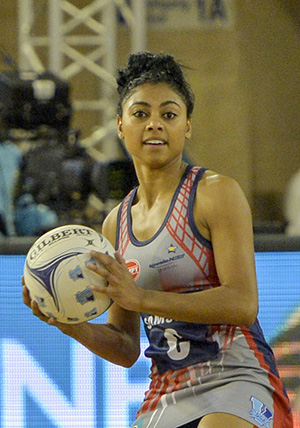
Lauren-Lee Christians became the 12th Protea from the University of the Free State in 2015. She will play for the South African Universities Netball team in America during July.
Photo: SASPA |
Two students from the University of the Free State (UFS), Lauren-Lee Christians and Karla Mostert, were selected for the South African Universities Netball team.
The team, with eight Proteas in its ranks, will be in action at the World Student Games in Miami, USA, from 13 to 17 July 2016.
Among the criteria for selection is that participants should not be older than 27 years in 2016, and they should have been students last year.
The South Africans, who came in second during the inaugural tournament in Cape Town four years ago, will be difficult to beat this time. A total of 12 countries will compete for the title of student champions.
Mostert part of previous successful team
Mostert was one of five Kovsies playing for this team in 2012, when South Africa lost 49-53 to Britain in the final. This came after the score was even at the end of regular play.
Mostert was also one of the two best players for the Proteas at the World Cup last year. Christians just missed out, and had to be content with being a non-travelling substitute after she became the 12th Protea of the UFS earlier in 2015.
Four from UFS in Cucsa squad
Meanwhile, four other of their teammates - Rieze Straeuli, Tanya Mostert, Kgomotso Mamburu, and Alicia Puren - were included in a provisional squad of 15 players to compete for the South African student team at the Cucsa Games (Southern African Student Games). This squad will soon be reduced to the 12 players who will represent their country in Bulawayo, Zimbabwe, from 1 to 6 August.
No Protea can be selected for this student team. A fifth Kovsie, the goal shooter, Dénielle van der Merwe, was also selected for the initial squad, but had to withdraw due to a serious leg injury.